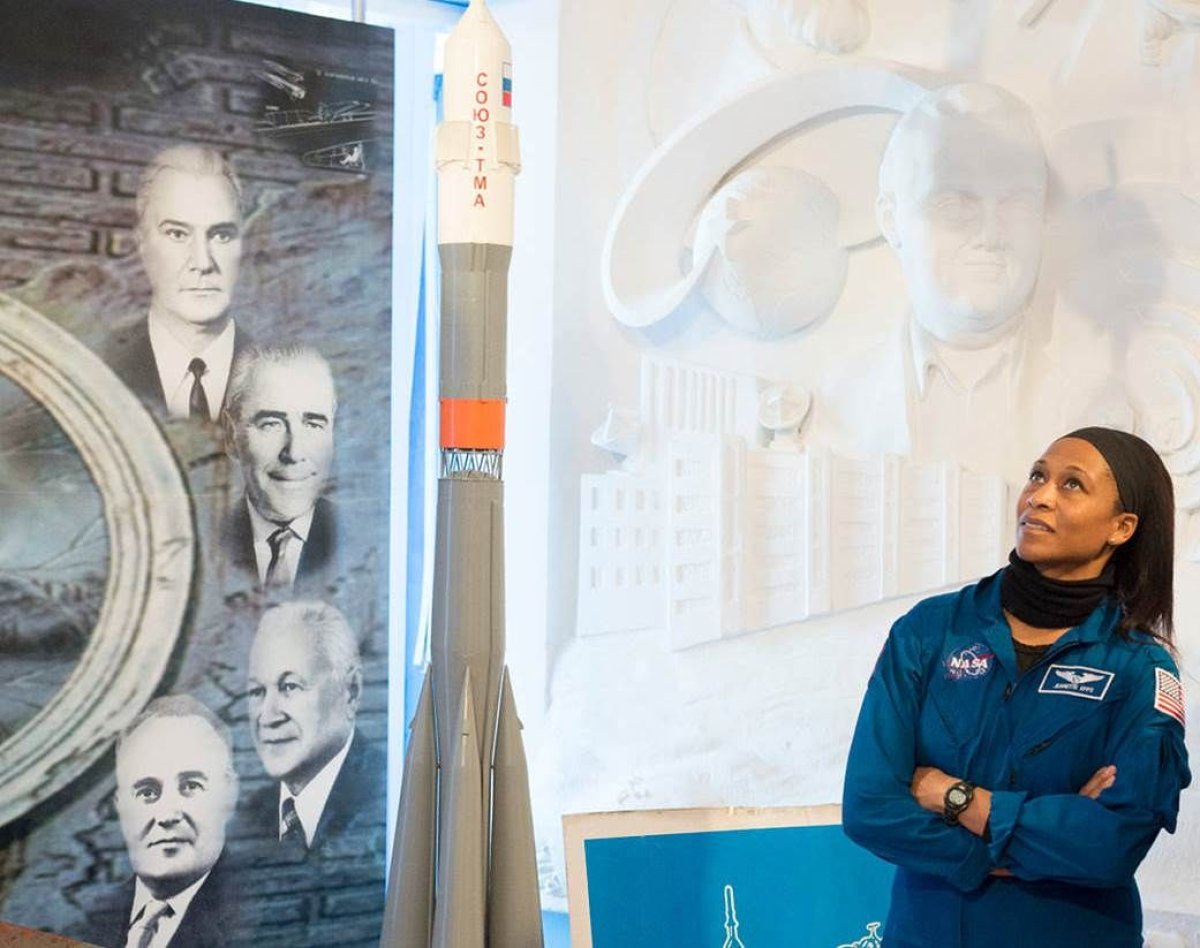
Updated | Jeanette Epps was set to become the first black astronaut to stay on the International Space Station (ISS) long-term. Last week, however, NASA announced she had been removed from the scheduled expedition. In the following days, rumors have swirled as to why.
Her brother cited racism in a now-deleted Facebook post, while NASA stayed quiet. Epps herself gave slightly more detail in an email to the Washington Post.
Former CIA officer

Epps, from Syracuse New York, achieved a doctorate in Aerospace Engineering from the University of Maryland in 2000. She went on to spend more than seven years as a technical intelligence officer for the CIA in 2002. In 2009, she was selected to join NASA's 20th astronaut class.
Serena Auñón-Chancellor, a medical doctor from Fort Collins, Colorado, is slated to take her place on June's Expedition 56/57. Auñón-Chancellor has handled medical issues as a flight surgeon for space crews. She was in the same astronaut class as Epps and had been her back-up crew member.
Health condition not to blame
Epps has not confirmed a specific reason for her removal. She did write that no medical condition or family problem was to blame, the Washington Post reported Monday. Her preflight training, she said, had been successful.
NASA itself has kept quiet about the reshuffle. In an email, agency spokesperson Stephanie Schierholz said: "A number of factors are considered when making flight assignments; decisions are personnel matters for which NASA doesn't provide information."
It is not unusual for NASA to rearrange crew members in advance of expeditions. In fact, the agency pulled Ken Mattingly from the near-disastrous Apollo 13 mission just one week before launch in 1970, after exposure to rubella. Mattingly finally made it into space on the Apollo 16 mission in 1972.
Epps might also be reassigned to another mission in future, NASA stated.
Racism at NASA
Epps's brother Henry Epps, blamed racism at NASA for her removal in a since-deleted Facebook post. He wrote: "My sister Dr. [Jeanette] Epps has been fighting against oppressive racism and misogynist in NASA and now they are holding her back and allowing a Caucasian Astronaut to take her place!"
The post linked to a MoveOn.org petition demanding the reinstatement of Epps on the international space station mission. As of 5:00 a.m. ET January 23, the petition has more than 1,600 signatures. The petition was not created by Epps or her family.
While no black astronauts have stayed long-term on the International Space Station, 14 African Americans have flown in space.
Epps did not comment on her brother's Facebook post, or the petition. She will return to NASA's Johnson Space Center in Houston.
This article has been updated to include more information about Serena Auñón-Chancellor.
Uncommon Knowledge
Newsweek is committed to challenging conventional wisdom and finding connections in the search for common ground.
Newsweek is committed to challenging conventional wisdom and finding connections in the search for common ground.
About the writer
Katherine Hignett is a reporter based in London. She currently covers current affairs, health and science. Prior to joining Newsweek ... Read more
To read how Newsweek uses AI as a newsroom tool, Click here.








